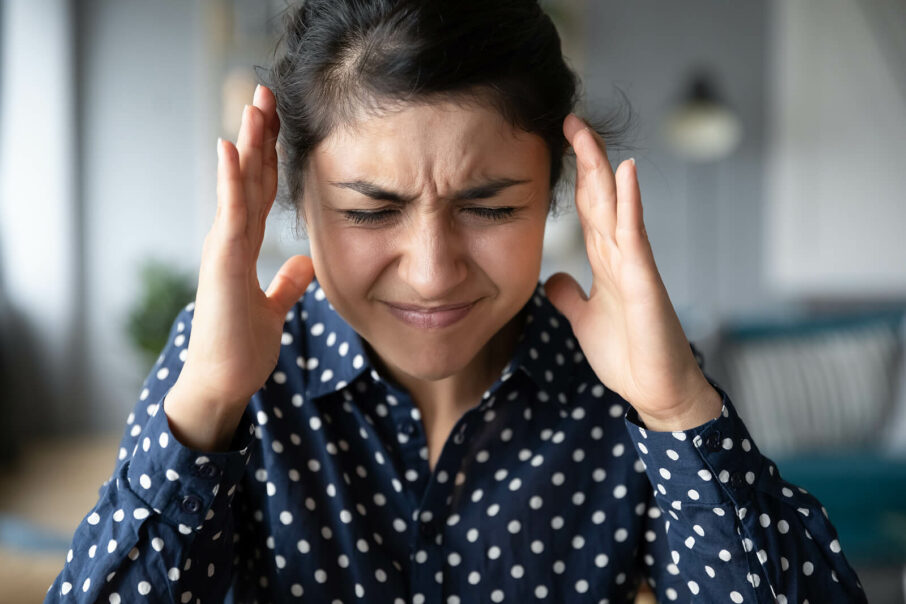A common misconception is that hearing loss only affects older adults. While it is true that the risk of hearing loss increases significantly with age, we are at risk at any stage of life from birth and beyond. In fact, many experts are discovering higher rates of hearing loss in younger generations such as Millennials and Generation Z. Studies show that about 10% of millennials and 17% of Generation Z have some level of hearing loss. While there is no cure to most cases of hearing loss, hearing aids can help make it easier to hear, however, most people in these younger generations would not even consider hearing loss to be an issue, even as it develops over years. This is in part because of the misconception of it only occurring to older adults and part because it develops so subtly they may not even know they have it.
The World Health Organization warns that 1.1 billion people between the ages of 12-35 may be at risk of hearing loss if widespread understanding of the risks of hearing loss doesn’t change. They believe with more education, access to treatment and reversing common misconceptions, these younger generations can have the tools to prevent or treat hearing loss so they can truly thrive and build the future we all deserve. Here are some of the risks fueling hearing loss at younger ages and what you can do to protect yourself from the risk of hearing loss now.
Causes Of Hearing Loss in Millennials and Gen Z
Anyone born between 1981 and 1996 (ages 23 to 38 in 2019) is considered a Millennial, and were named as they became adults around the turn of the millennium. They are the first generation to grow up around the internet. Generation Z (or more commonly Gen Z), also known as Zoomers, succeed Millennials and grew up immersed in internet culture. For now age related hearing loss is not the driving factor of these younger generations as of yet, there are so many factors, particularly due to more time online which drive up the risk of hearing loss.
Noise-induced Hearing Loss
There is an unlimited amount of information on the internet from movies, music podcasts and who knows what else and for Millennials and Zoomers they came of age around it. However, along with unlimited access to information comes unlimited exposure to sound. The loudness or volume of sound is measured in decibels (dBA) and the human ears can hear any sounds below 85 dBA without sustaining damage. However, past this threshold for eight hours or more, sound vibrations become violent enough to damage the tiny hairlike cells which are the sole delivery system for sound from the inner ear to the brain. When this occurs, the result is permanent hearing loss.
However, as the sounds increase the exposure time decreases. For every increase of three decibels the exposure time is cut in half. For instance at 88 dBA it only takes four hours to cause damage and two hours at around 91 dBA. The issue is that headphones connected to personal listening devices—a staple for millennials and Gen Z, can reach as loud as 110 dBA. At this level of exposure hearing damage can occur in minutes, however, many young people will listen for hours on end resulting in a generation which struggles with hearing and communication issues. In fact, the Centers for Disease Control and Prevention (CDC) reports that 40 million people ages 20 to 69 have hearing damage due to everyday noise exposure.
Impact
The impact of this type of exposure is more serious than many would first believe. It can initially cause communication issues which affect the strength of moral boosting relationships among peers, family, and even significant others. It can also impact a person’s ability to truly succeed in the workplace, limiting raises, promotions and even employment. The result of undiagnosed and untreated hearing loss is a blow to self-esteem, reduced mobility, chronic depression, social anxiety, isolation, and loneliness. Even more alarming, as hearing loss progresses the risk of cognitive decline increases even in the early stages of hearing loss, increasing the risk of dementia later in life.
Protect Your Hearing
Want to protect your hearing? Here are some tips:
- Turn down the volume: listen to headphones at no more than 60 percent of the total volume and take listening breaks every 45 minutes to an hour.
- Invest in noise canceling technology to protect your ears when listening at loud events or listening to headphones.
- Test for hearing loss annually. Catching it early can make all the difference. Contact us now to schedule your next hearing exam!


